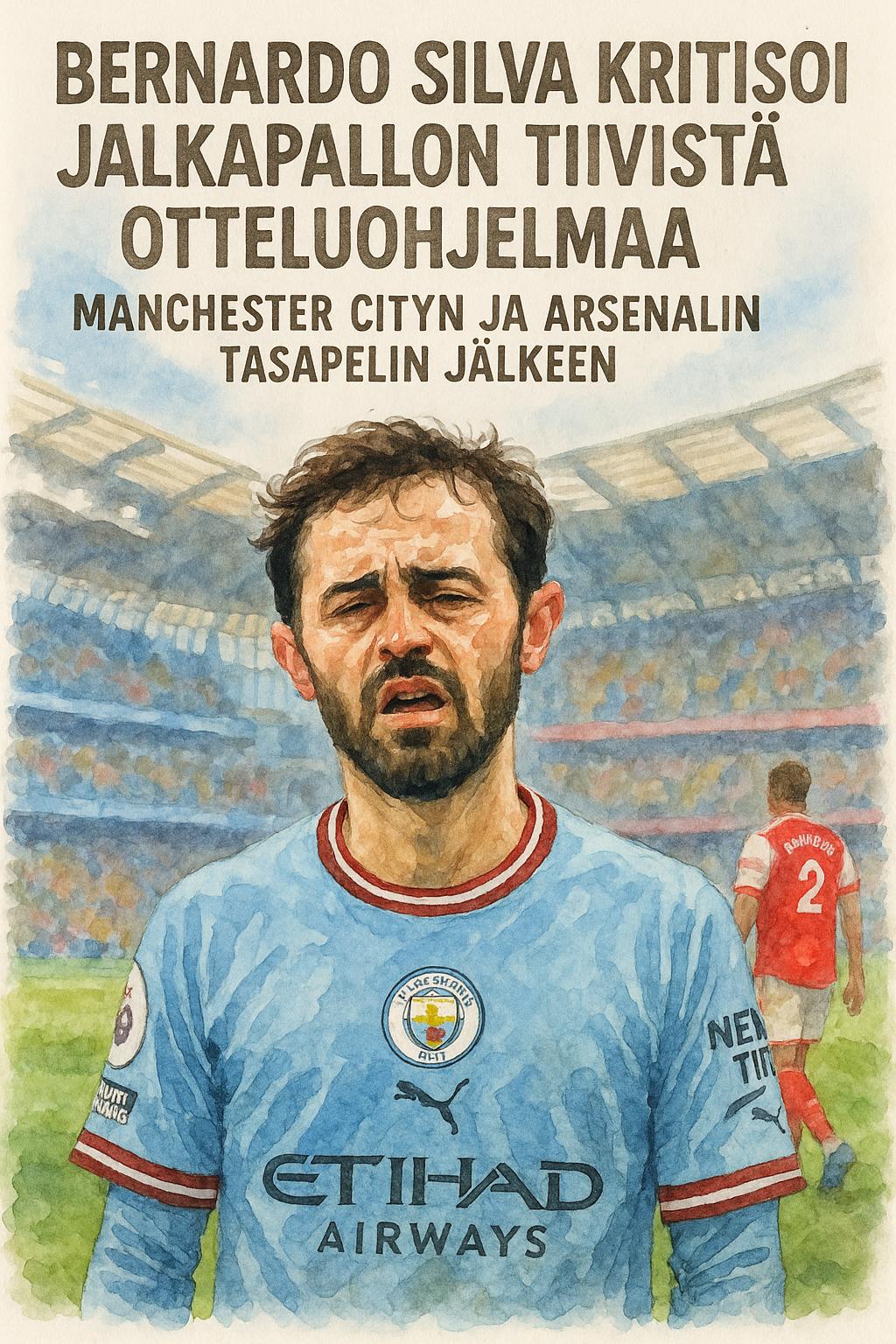Bernardo Silva kritisoi jalkapallon tiivistä otteluohjelmaa Manchester Cityn ja Arsenalin tasapelin jälkeen
Sunday night at the Etihad wasn’t just about the 1–1 draw between Manchester City and Arsenal. As the whistle blew, all eyes turned to Bernardo Silva—not for his usual tireless performance but for his candid words after the match. Exhaustion, he said, was making the sport unfair, and his frustration pulled back the curtain on a debate football has long tiptoed around.
A Tale of Two Schedules
The build-up to the clash painted two very different pictures. City were still recovering from a Champions League tussle with Napoli on Thursday, while Arsenal had wrapped up their midweek game against Athletic Bilbao by Tuesday. That extra 48 hours of rest may sound minor, but in professional football it’s a huge advantage—legs feel lighter, minds sharper, recovery more complete.
Silva, who played every minute of both fixtures, laid bare the toll. “I didn’t feel fully recovered,” he admitted afterward. For players at this level, those fractional differences in energy often decide games.
More Than Just a City Problem
Silva wasn’t simply lamenting his own fatigue. He was pointing to the broader crisis of fixture congestion—a challenge facing clubs across Europe. Between relentless domestic campaigns, cup competitions, Champions League nights, and international duty, footballers are being stretched like never before.
- League fixtures arrive at breakneck pace.
- Domestic cups pack the calendar further.
- European competitions add midweek intensity.
- International travel disrupts whatever rest remains.
It’s a cycle where recovery feels like a luxury, not a given.
A Problem That Won’t Go Away
Managers such as Pep Guardiola have voiced this concern for years. Kickoffs crammed after grueling midweek ties, matches dictated as much by broadcasters as by sporting fairness, and new tournaments announced almost as soon as players plead for fewer. FIFA and UEFA’s thirst for expansion ensures this congestion is not fading anytime soon.
Why Silva’s Words Matter
Bernardo Silva isn’t a fringe player—he is the pulse of City’s high-energy game. For him to openly admit he was playing on empty adds weight to what might otherwise be dismissed as excuses. His honesty reflects a growing reality: the physical risks are escalating, and the mental toll is unavoidable.
- Increased risk of injury from limited recovery time.
- Potential decline in player performance on the field.
- Long-term impact on athletes’ careers and well-being.
The Bigger Question
The real dilemma is whether football’s authorities are willing to actually change the game’s calendar—or if burnout has become the hidden price of modern success. For now, Silva’s words echo a truth many feel but rarely voice: the schedule isn’t just demanding, it’s edging into the unfair.
When he spoke, Silva wasn’t only representing himself. He gave voice to countless players who step onto the pitch, body aching and energy low, yet must face roaring crowds and relentless pressure all the same.
⚽ Your turn: Should leagues, FIFA, and UEFA rethink schedules to protect their players—or is this strain simply part of football at the very top?
